Patient partners and researchers leading the path to a cancer-free tomorrow
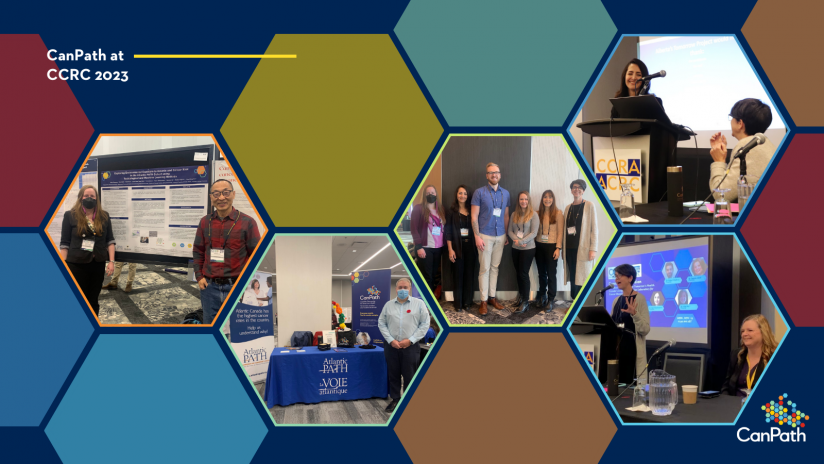
Several researchers using CanPath data shared their latest findings at the Canadian Cancer Research Conference in Halifax.
In 2014, Pauline McIntyre found an advertisement for Atlantic PATH, a research study seeking cancer survivors to fill out their survey and provide biological samples. “I thought this would be a good way to help with research, so I contacted them and went for my testing almost 10 years to the day from my first surgery.”
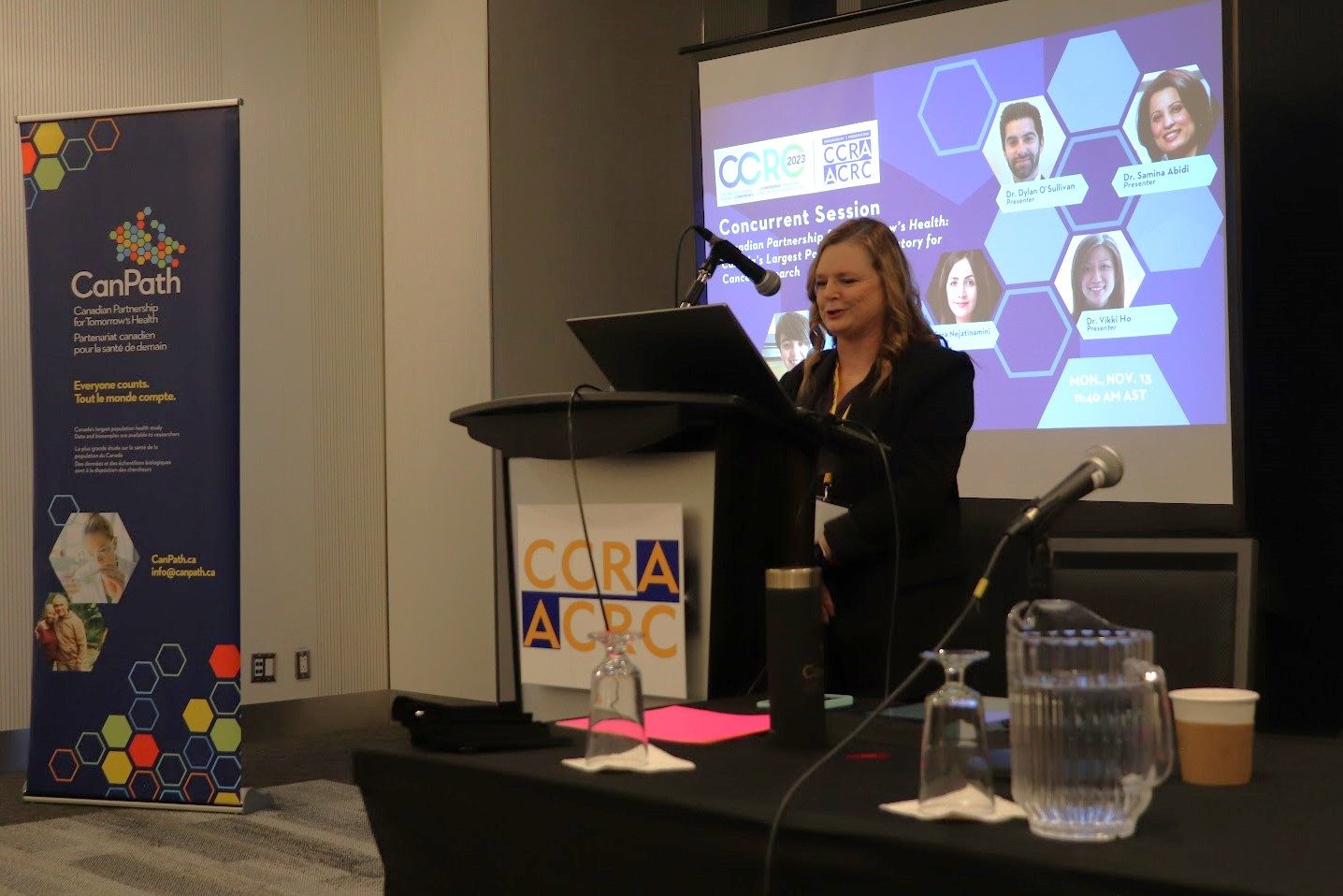
She found it difficult to recall the procedure because it was very non-invasive – that is, until she joined as a patient partner for the Canadian Cancer Research Conference (CCRC) and connected with the CanPath team.
Fast forward to November 2023: CanPath researchers and staff from across Canada travelled to Halifax for the CCRC. At the CanPath concurrent session, Pauline shared her cancer story.
“First, I’d like to thank everybody for being here and for the work that you do so that maybe someday we won’t have to be standing here like this,” she began, motioning to the room of cancer patients, clinicians and researchers at the CanPath concurrent session, hopeful for a cancer-free future.
“Who knows, maybe some of the data used by you folks could be mine!” she said, opening the session before four researchers using CanPath and regional cohort data presented their latest findings:
- Dr. Dylan O’Sullivan presented the risk factors for early-onset colorectal cancer using Ontario Health Study and Alberta’s Tomorrow Project data.
- Dr. Samina Abidi shared a digital health and artificial intelligence-based public health platform for cancer risk prediction using data from Atlantic PATH.
- Dr. Sara Nejatinamini showcased changes in breast and cervical cancer screening during the COVID-19 pandemic using data from Alberta’s Tomorrow Project.
- Dr. Vikki Ho presented two studies within CARTaGENE that explore the relationship between workplace exposures and certain chemicals and their impact on lung and colorectal cancer risk.
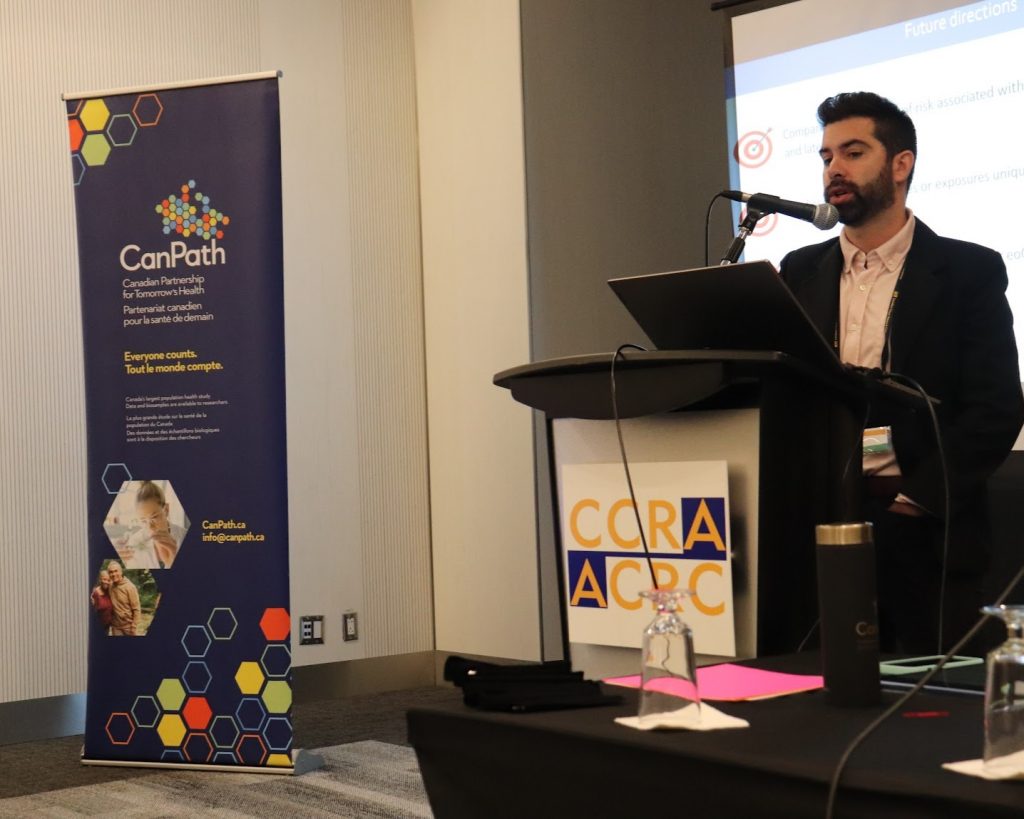
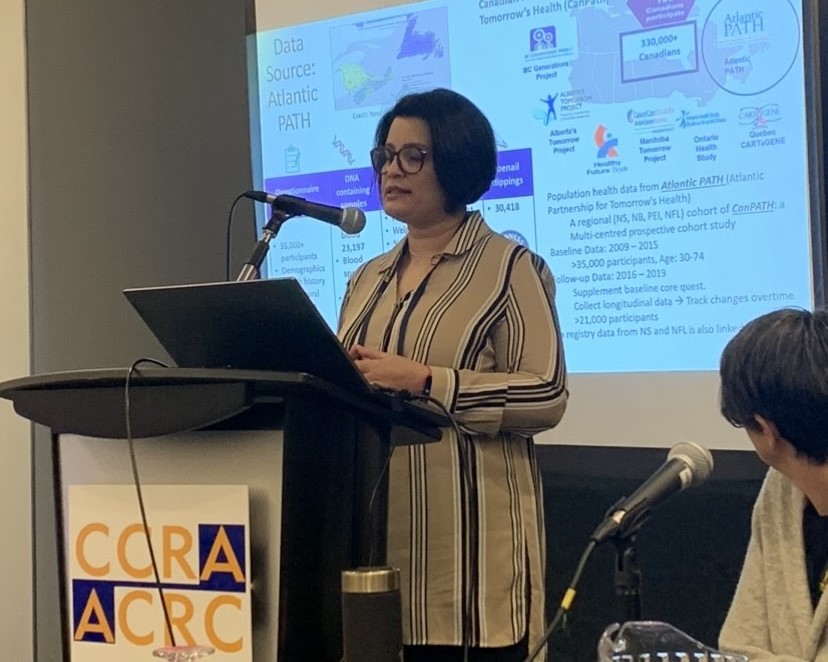
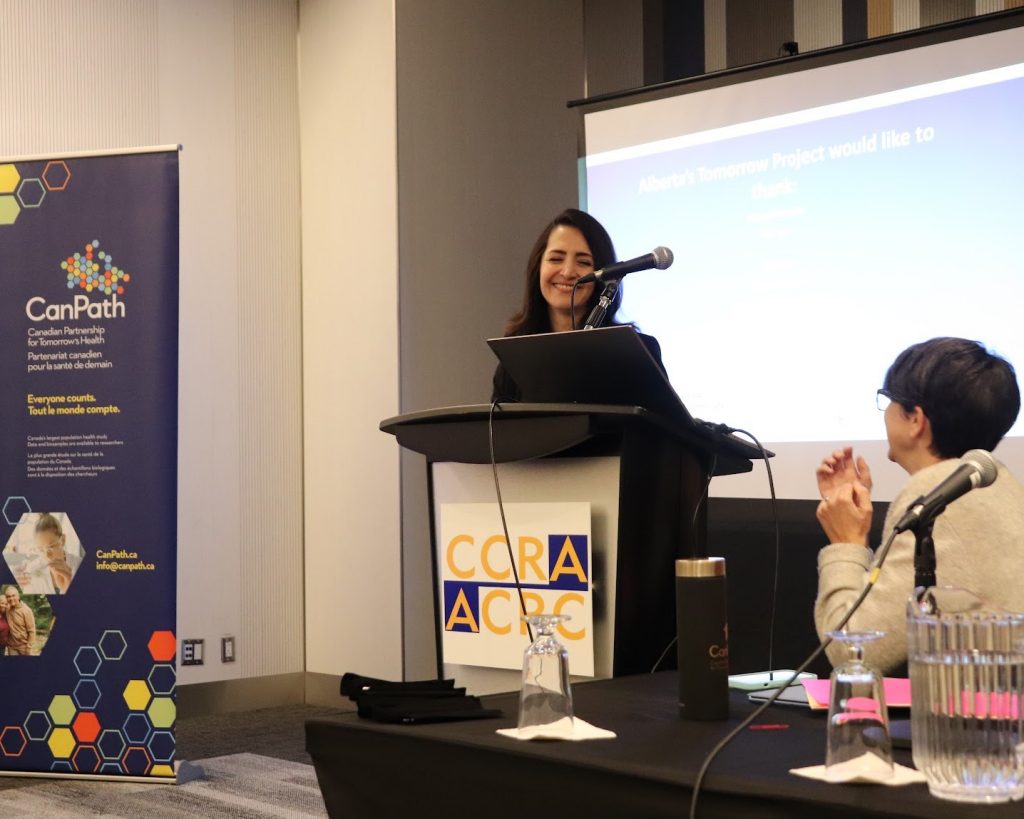
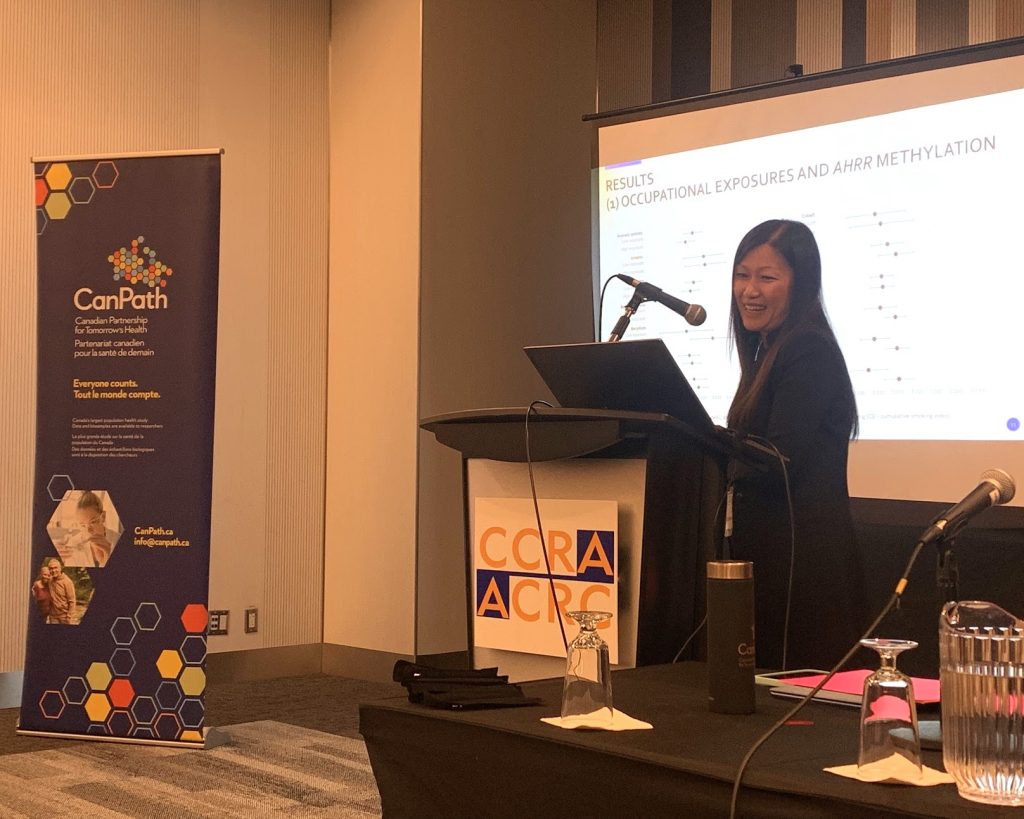
As a two-time cancer survivor and daughter to a cancer survivor, Pauline felt reassured to hear about new research developments in this space.
CanPath researchers are working towards enhancing and accelerating research to predict cancer sooner and foster a deeper understanding of chronic diseases – and this important research is only possible because of the rich data from over 330,000 participants!
“You folks do amazing stuff for us,” says Pauline.